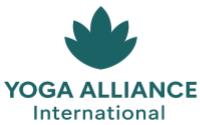Recognition for Yoga Teachers and Schools Based on Skills, Experience, and Training — Not Bureaucracy.
The Difference Between Registration and Certification as a Yoga Teacher
The difference between registration and certification as a yoga teacher often confuses new yoga professionals. Both terms appear in yoga industry marketing, yet they represent different systems and hold distinct value. Certification validates that you completed a training course, while registration records your details in a membership database. Understanding these differences helps you make better career choices, especially if you plan to teach yoga full time. Many yoga schools emphasize certification, while organizations emphasize registration, and both approaches carry unique strengths and limitations. In this blog, we will explore how certification and registration function, their history, what they provide, and how aspiring teachers should approach them. By the end, you will understand how certification and registration differ, how they overlap, and which option serves your goals. This clarity matters for building credibility, protecting students, and aligning with industry standards.
Certification: Proof of Your Training and Skills
Certification in yoga means you have completed a formal teacher training program. A certificate serves as documented evidence that you learned skills from an approved yoga school. Certification shows you studied specific hours, passed practical evaluations, and reached a standard of competency. Many employers ask for certificates to confirm you trained under a recognized school or trainer. Yoga certification programs usually follow a structured curriculum covering philosophy, anatomy, teaching methods, and ethics. Most certifications come from yoga schools offering 200-hour or 300-hour training formats. These programs often include written exams, teaching demonstrations, and ongoing mentorship. Certificates confirm that you invested time and energy to build teaching ability. Certification also assures your future students that you learned from experienced mentors, not from casual study. Certification usually comes directly from a yoga school, not from an outside registry. Unlike registration, certification reflects achievement, skill acquisition, and education quality, not only membership status. Certificates generally last for life, though continuing education adds credibility. This permanence makes certification a solid foundation for a yoga career.
Registration: Membership in a Professional Database
Registration is different from certification because it represents membership in a directory or registry. When you register, your name appears in a searchable list of yoga teachers managed by an organization. Registration does not evaluate your teaching skills directly. Instead, it verifies that you hold a certificate from a recognized school. Popular registries include Yoga Alliance in the United States or Yoga Alliance Canada. These organizations maintain large databases where students can search for teachers. Registration also includes ongoing membership fees and requirements. Members often pay annual dues to remain listed, and must record continuing education hours. Registration offers visibility, networking opportunities, and access to community resources. It also serves as a marketing tool, helping teachers demonstrate accountability. Registration does not replace certification but builds on it. Without certification, you usually cannot register, since organizations require proof of training. Registration shows students that you are part of a professional body. This helps them trust you follow ethical standards and updated learning. Unlike certification, registration is temporary and must be renewed. You lose registration if you stop paying dues, but your certificate remains valid.
Key Differences Between Registration and Certification
Certification and registration differ in purpose, authority, and permanence. Certification proves training, while registration lists members within an organization. Certification is usually issued once and lasts indefinitely, while registration requires ongoing renewal. Certification demonstrates personal achievement and professional qualification, while registration provides external recognition and professional affiliation. Employers often prioritize certification because it proves actual training hours. Students may check registration to ensure accountability and ethical compliance. Certification comes directly from schools, but registration comes from organizations or associations. Certification usually involves exams and assessments, while registration involves paperwork and payment. Certification reflects knowledge gained, while registration shows commitment to professional standards. Both carry weight, but they serve different audiences. Certification speaks to your skills, while registration speaks to your professional connections. Registration can expire, but certification generally does not. Registration highlights membership benefits, while certification shows training completion. These differences explain why many teachers pursue both, since each supports career credibility in unique ways. Understanding these differences helps you avoid confusion when marketing yourself to studios and students.
Why Some Teachers Confuse the Two Terms
Many teachers confuse certification and registration because organizations and schools often use similar language in promotions. Schools highlight certification but also mention eligibility for registration, creating overlap. Registries emphasize their membership benefits but market them as if they equal certification. This blending of terms leads many new teachers to believe registration equals training achievement. Social media also adds to confusion, with teachers promoting themselves as “certified and registered” without clear explanation. Some schools frame registration as proof of training, though it actually depends on certification. Similarly, organizations sometimes suggest that membership ensures teaching ability, which is misleading. The yoga industry lacks universal regulation, so marketing language often stretches meanings. This confusion affects career planning, especially for teachers unsure where credibility truly comes from. Certification is your foundation, while registration is your professional connection. Both can matter, but they are not interchangeable. Teachers should study the differences to avoid misunderstandings with employers or students. Awareness prevents disappointment when you discover registration alone does not prove teaching ability. Knowing the distinction ensures your professional identity remains clear, accurate, and respected.
Benefits of Certification for Yoga Teachers
Certification provides long-term benefits for yoga teachers seeking credibility and skill recognition. A certificate proves you invested in structured training and passed required assessments. Employers and students often ask to see proof of certification before trusting your teaching. Certification also helps with liability insurance applications, which often require proof of training hours. It serves as your official record of education, which remains valid throughout your career. Certification also builds confidence, because it reflects your achievement in completing a challenging program. Many teachers also value certification because it connects them with respected mentors. The mentorship and community built during certification continue to support career growth. Certification also allows you to pursue advanced training, like 300-hour or 500-hour programs. Without initial certification, you cannot access these higher-level courses. Certification is portable, meaning it is recognized worldwide by many yoga communities. Certification is also usually more affordable long term, since it does not require yearly renewal. It represents an investment that continues to hold value without additional fees. Certification, therefore, stands as the foundation of every yoga teacher’s career path and credibility.
Benefits of Registration for Yoga Teachers
Registration also offers important advantages for yoga teachers. Registration connects you with professional organizations that promote standards and accountability. By registering, your name appears in public directories used by students seeking teachers. This visibility helps new teachers attract students and build a career. Registration also signals commitment to ethical guidelines and continuing education. It shows you invest in ongoing growth, not just initial training. Many studios prefer teachers who are registered, since it assures compliance with current standards. Registration often includes access to workshops, webinars, and networking opportunities. This professional community strengthens your practice and career development. Registration can also add credibility in competitive yoga markets. Students may feel safer choosing a registered teacher listed in a respected directory. Registration sometimes provides discounts on insurance, events, and professional tools. While certification proves training, registration signals professional identity. Registration also keeps you accountable for staying current with yoga trends. This ongoing renewal process helps you grow beyond your initial certificate. Registration therefore serves as a valuable complement to certification, especially for teachers building professional visibility.
Which Path Should Aspiring Yoga Teachers Choose?
Aspiring yoga teachers often ask whether certification or registration matters more. The truth is both play different roles. Certification is essential, because you cannot teach without proof of training. Registration is optional, though many teachers find it helpful for visibility and credibility. New teachers should always prioritize certification first, because it provides the foundation for everything else. Without certification, you cannot access most professional opportunities. After certification, registration can be a strategic choice. If you want to work in studios or gyms, registration may improve your chances. If you plan to teach independently, certification alone may be enough. Consider your goals, budget, and long-term career vision. Certification is a one-time cost, while registration involves annual fees. Some teachers skip registration because they prefer direct marketing. Others invest in registration to access professional networks and resources. The best path depends on your career vision. Both certification and registration matter, but certification always comes first. Registration adds polish but cannot replace your initial training foundation.
Certification and Registration in the Global Yoga Market
Certification and registration also vary across the global yoga market. Some countries emphasize certification alone, while others emphasize registration. In the United States, Yoga Alliance plays a major role in registration. In Canada, multiple organizations offer registration options, though not all carry equal weight. In Europe, certification often matters more, since many countries regulate yoga education differently. In Asia, certification is often recognized without registration, especially in India. This variation shows that both terms depend on local yoga culture. Global teachers benefit from understanding these differences, especially if they plan to work internationally. Certification usually transfers across borders, but registration may not. A certificate from a school in India may allow you to register elsewhere. However, local organizations may set additional requirements. Teachers should always research regional expectations before moving abroad. Certification is universally respected, while registration often functions regionally. Global teachers should build careers on certification, then add registration when useful. This layered approach works best in international yoga markets.
Conclusion: The Difference Between Registration and Certification as a Yoga Teacher
The difference between registration and certification as a yoga teacher defines how you build credibility in the industry. Certification proves your training and demonstrates actual skills, while registration provides professional listing and accountability. Certification is permanent, while registration requires renewal. Certification comes from schools, while registration comes from organizations. Both serve unique purposes and together strengthen your career. New teachers should always secure certification first, since it creates the foundation for teaching. Registration then enhances visibility and accountability. Understanding these differences helps you avoid confusion and market yourself effectively. Certification and registration complement each other, but they are not the same. Teachers who recognize this distinction make better career choices and avoid wasted effort. The yoga industry values honesty and clarity, and your professional identity should reflect that. Always remember: certification shows what you achieved, registration shows where you belong.


